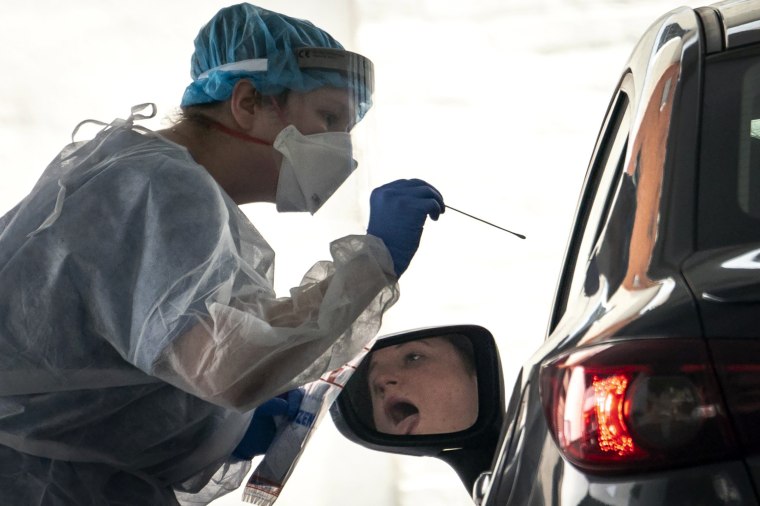Donald Trump's rhetoric on coronavirus testing has long been ridiculous, including the president's repeated recent assertions that the number of cases would largely disappear if only the United States stopped conducting tests.
But even for Trump, his Saturday night rhetoric was, at a minimum, unsettling.
President Donald Trump told a mostly unmasked crowd of supporters Saturday night in Tulsa, Oklahoma, that he wanted to slow down testing for the coronavirus. "Testing is a double-edged sword," he said, adding that the U.S. has conducted 25 million tests. "When you do testing to that extent, you're going to find more people, you're going to find more cases, so I said to my people, 'Slow the testing down, please.'"
Sen. Chris Murphy (D-Conn.) responded soon after, "From the beginning, the lack of a response hasn't been an accident. It's been by design. His plan has been to let people die. This guy is a danger and a menace and it's wild that now he just admits this openly and believes no one will care."
For what it's worth, members of the president's team insisted after the event that Trump was kidding with his unscripted comments at Saturday's rally. It's entirely possible that the explanation is true, and the comments were meant to be funny.
But we're nevertheless left with a pair of disturbing options. Either the president was telling the truth, and he encouraged federal officials to scale back testing efforts during a pandemic for public-relations purposes, or Trump thinks now is a good time to joke about a key element in the response a deadly virus -- as the death toll in his own country tops 120,000.
What's more, there's a larger context to this that Team Trump can't brush aside too quickly: the president has spent months arguing that he sees coronavirus testing as a political inconvenience. In other words, whether his comments on Saturday represented gallows humor or not, Trump's larger point -- he doesn't like testing because it produces results he'd prefer not to see -- dovetails perfectly with his unfortunate "joke."
Indeed, despite the pushback his comments in Tulsa generated over the weekend, the president returned to the subject early this morning, once again tweeting that he blames testing for making it "look like" the United States has more coronavirus cases than other countries.
Public-health officials continue to explain that the president's political posturing is at odds with the facts, but Trump doesn't seem to care.
Finally, it's important to emphasize that the president's public rhetoric matters, but his administration's actions matter more. With this in mind, Senate Minority Leader Chuck Schumer (D-N.Y.) and Senate Committee on Health, Education, Labor, And Pensions Ranking Member Patty Murray (D-Wash.) yesterday sent a letter to HHS Secretary Alex Azar with a striking claim.
According to the Democratic leaders, a recent emergency aid package approved by Congress included $25 billion to expand coronavirus testing and contact tracing capacity, but the Trump administration has only allocated about a third of the available funds.
"While it has been months since these funds were first appropriated, the administration has failed to disburse significant amounts of this funding, leaving communities without the resources they need to address the significant challenges presented by the virus," the Democratic senators wrote.
Schumer and Murray didn't accuse administration officials of having political motivations for failing to spend the approved funds, but in the wake of Trump's "slow the testing down" comments, the question seems unavoidable.

